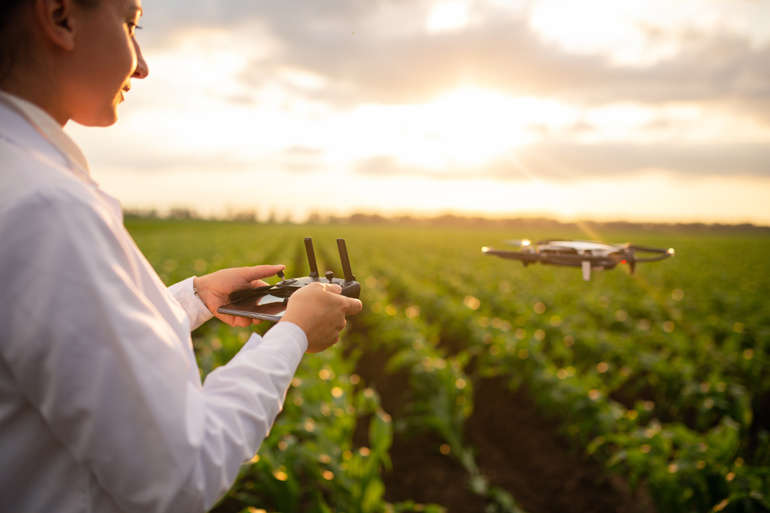Sustainable IT practices and green solutions have become essential components of business strategies in the UK. These practices involve reducing energy consumption, minimising e-waste, using renewable energy sources, and adopting efficient technologies to lower the environmental footprint. The UK is making significant strides in this direction, with several companies leading the charge.
How is the UK using and adapting tech to adhere to sustainability ideals?
Optimising renewable energy systems
- Software development: UK developers are creating software to optimise renewable energy systems, including solar, wind, and hydroelectric power.
- Energy storage solutions: Improvements in energy storage technology ensure a stable and reliable energy supply.
- Smart grids: The UK is investing in smart grid technology to manage and distribute energy efficiently. The National Grid has set a target to operate a zero-carbon electricity system by 2025.
Environmental data analysis
- Data analysis tools: UK programmers are developing tools to aid in environmental data analysis, helping governments and organisations monitor natural resources.
- Climate change tracking: These tools assist in tracking the impacts of climate change, enabling better response strategies. The UK's climate tech sector saw a 10% growth in job vacancies in 2023, reflecting the increasing integration of climate policy into business strategies.
Smart city technologies
- Intelligent transportation systems: Implementing systems to optimise traffic flow and reduce emissions in cities like London and Manchester.
- Smart grids: Enhancing energy distribution efficiency in urban areas through projects such as the Smart London Plan.
- Waste management: Developing efficient waste management solutions to lower urban carbon footprints. London aims to become a zero-waste city by 2050.
IoT networks and environmental sensors
- Monitoring systems: Using IoT networks and environmental sensors to monitor air and water quality, deforestation, and wildlife populations.
- Ecosystem protection: Providing crucial data for conservation efforts in UK national parks and protected areas.
Precision Agriculture
- Drone-based monitoring: Implementing drones for monitoring crops across the UK.
- AI-driven crop management: Using AI to help farmers optimise resource use, reduce waste, and minimise environmental impact. By 2030 the UK's Agri-Tech strategy is projected to increase agricultural productivity by 20%.
Blockchain and green finance
- Carbon trading: Developing blockchain solutions for transparent carbon trading. The UK Emissions Trading Scheme (UK ETS) is a significant step towards reducing greenhouse gases.
- Green finance platforms: Creating platforms to support investments in sustainable projects. The UK is a leader in green finance, with London being one of the top global hubs for green bonds.
Sustainable IT practices
- Optimising cooling systems: Efforts to improve the energy efficiency of cooling systems in data centres. For example, BT aims to use 100% renewable electricity by 2025.
- Energy-efficient Servers: Utilising servers that consume less power.
- Virtualisation techniques: Reducing the number of physical machines through virtualisation.
Electronic waste management
- Take-back programmes: Implementing programmes for the proper disposal and recycling of electronic waste.
- Partnerships with recyclers: Collaborating with e-waste recyclers.
- Longer life cycles: Designing products to last longer and reduce waste. The UK is working towards its target of recycling 65% of municipal waste by 2035.
Cloud computing
- Efficient data centres: Cloud providers like AWS, Google Cloud, and Microsoft Azure are operating more energy-efficient data centres than traditional solutions.
Green software engineering
- Optimising code: Ensuring that software applications run on minimal resources.
- Reducing high-power computing: Decreasing the need for high-power computing to lower energy consumption.
Companies leading the way
BT, a major UK telecommunications company, is committed to sustainability, aiming to become a net-zero carbon emissions business by 2045. BT has significantly invested in renewable energy projects and designed energy-efficient data centres. In 2023, BT recycled over 95% of its waste.
Vodafone UK has set a target to achieve net-zero carbon emissions by 2040. The company is investing in renewable energy and efficient technology, with all its European operations, including the UK, running on 100% renewable electricity since July 2021.
Ocado, a British online grocery retailer, uses AI and robotics to optimise supply chain and warehouse operations, reducing energy consumption and waste. Ocado is committed to achieving net-zero carbon emissions from its operations by 2040.
If you’re interested in contributing to sustainable development through a career in tech, now is the perfect time. Get in touch today.
